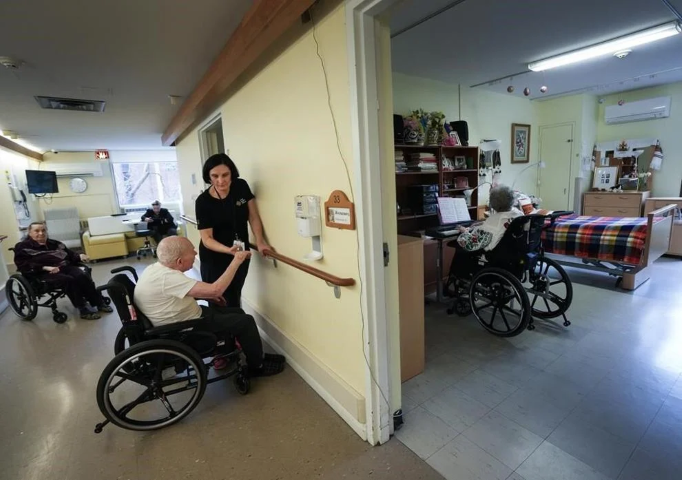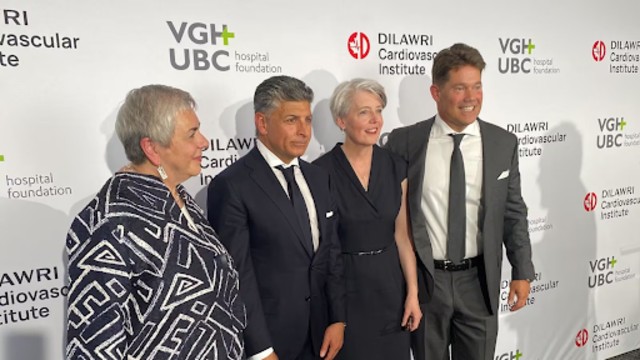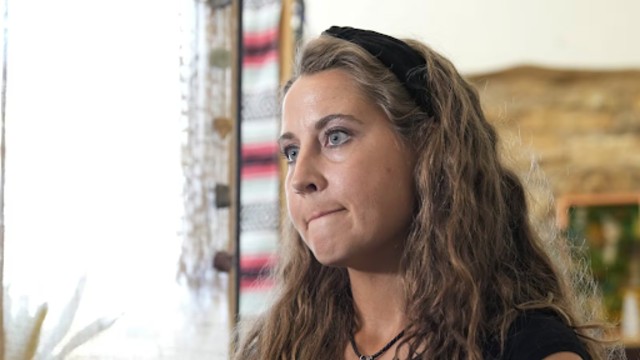
A health-care worker helps an elderly man do strength exercises at the Ivan Franko Long-term Care Home, a Ukrainian cultural home in Toronto on Wednesday, April 3, 2024. THE CANADIAN PRESS/Nathan Denette
In a Toronto long-term care facility, Villa Colombo, the admission of approximately three non-Italian residents each month has left them feeling bewildered and cut off due to changes in government priority rules. These individuals find themselves in an environment where the predominant language spoken is Italian, a setting where they struggle to communicate and integrate.
Lisa Alcia, the executive director of Villa Colombo, expressed empathy for these residents, noting the significant cultural and linguistic barriers they face. With the facility's programming primarily conducted in Italian, the new residents, many of whom do not speak Italian or English, experience profound isolation. Alcia highlighted the adverse effects of cultural isolation, particularly for individuals with dementia, whose condition may exacerbate due to the lack of familiarity and understanding in their surroundings.
The challenges observed at Villa Colombo are not unique, as several other cultural long-term care homes across Ontario report similar situations. These homes cater to seniors from diverse communities such as Korean, Jewish, and francophone backgrounds, among others.
The root of the problem lies in a legislative measure known as Bill 7, implemented in 2022, which has drawn criticism for its implications on long-term care admissions. AdvantAge Ontario CEO Lisa Levin explained that the new law prioritizes individuals being discharged from hospitals who require long-term care but cannot return home. As a result, the bureaucratic process behind admissions often leads to individuals being placed in homes that may not align with their cultural or language preferences.
Levin highlighted the unintended consequences of Bill 7, particularly its impact on admissions to cultural long-term care homes. She underscored the rigid prioritization process, wherein individuals may be assigned to homes based on availability rather than personal preferences, potentially leading to further disconnection from their cultural communities.
Under Bill 7, hospitals are mandated to charge patients $400 per day if they refuse transfer to a long-term care home selected by a placement coordinator, even if it is not their preferred choice. This provision further complicates the situation for individuals seeking culturally appropriate care.
While acknowledging the unintended consequences of Bill 7, Ontario's Long-Term Care Minister Stan Cho assured that efforts were underway to address the issue. Cho emphasized the importance of preserving cultural connections in long-term care and expressed optimism about finding solutions in collaboration with relevant stakeholders.
At the Ivan Franko Long-Term Care Home, a Ukrainian cultural facility in Toronto, CEO Olya Vovnysh echoed similar sentiments regarding the challenges faced by non-Ukrainian residents. With occupancy rates of approximately 25% non-Ukrainian residents, Vovnysh emphasized the home's commitment to accommodating diverse cultural needs. Despite efforts to provide inclusive care, adapting to different cultural preferences, including cuisine and traditions, poses significant challenges for staff.
Vovnysh emphasized the importance of respecting residents' choices and enabling access to culturally appropriate care options. She called for improvements in the admissions process to better align with individuals' preferences and needs, emphasizing the significance of understanding and accommodating diverse cultural backgrounds.
Political leaders, including NDP Leader Marit Stiles, have called for immediate action to address the adverse consequences of Bill 7. Stiles underscored the importance of ensuring seniors' access to culturally appropriate care and emphasized the need for supportive measures, including language support and appropriate food choices, in long-term care facilities.















